Cŵl Runnings – The Welshman coaching the Jamaican bobsleigh team
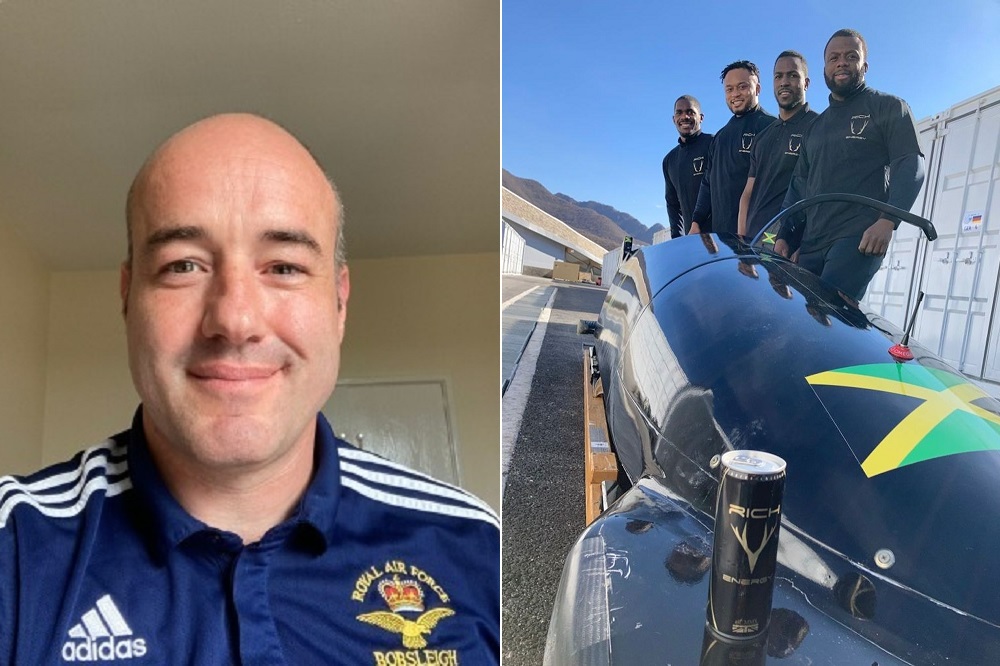
Christopher Evans
When Cool Runnings was released in 1993, the film became an instant hit around the globe. The story was loosely based around the Jamaican national bobsleigh team’s exploits at the 1988 Winter Olympics in Calgary, Canada.
Starring John Candy as a disgraced Olympic cheat turned coach, the comedy would eventually gross over $154 million dollars worldwide at the Box Office.
Fast-forward to the 2022 Winter Olympics and a new chapter of the story will be written in Beijing – with a Welsh twist.
Carmarthenshire-born Mark Silva is the Technical Director of the Jamaica Bobsleigh and Skeleton Federation (JBSF) and also Development Manager for British Bobsleigh and Skeleton (BBSA). He will predominantly be in charge of the four-man Jamaican bobsleigh team at the games.
Mark, 46, an engineer in the RAF, has been involved in Bobsleigh since 2006. His interest was piqued by a random advert on a wall. “I was in work and it was one of those things where I thought, ‘what can I do to get myself out of work’. I was coming to the end of my rugby playing days because of my knees and I saw a poster that just said ‘luge’. Going down a hill at pace seemed good to me,” laughs the affable Welshman.
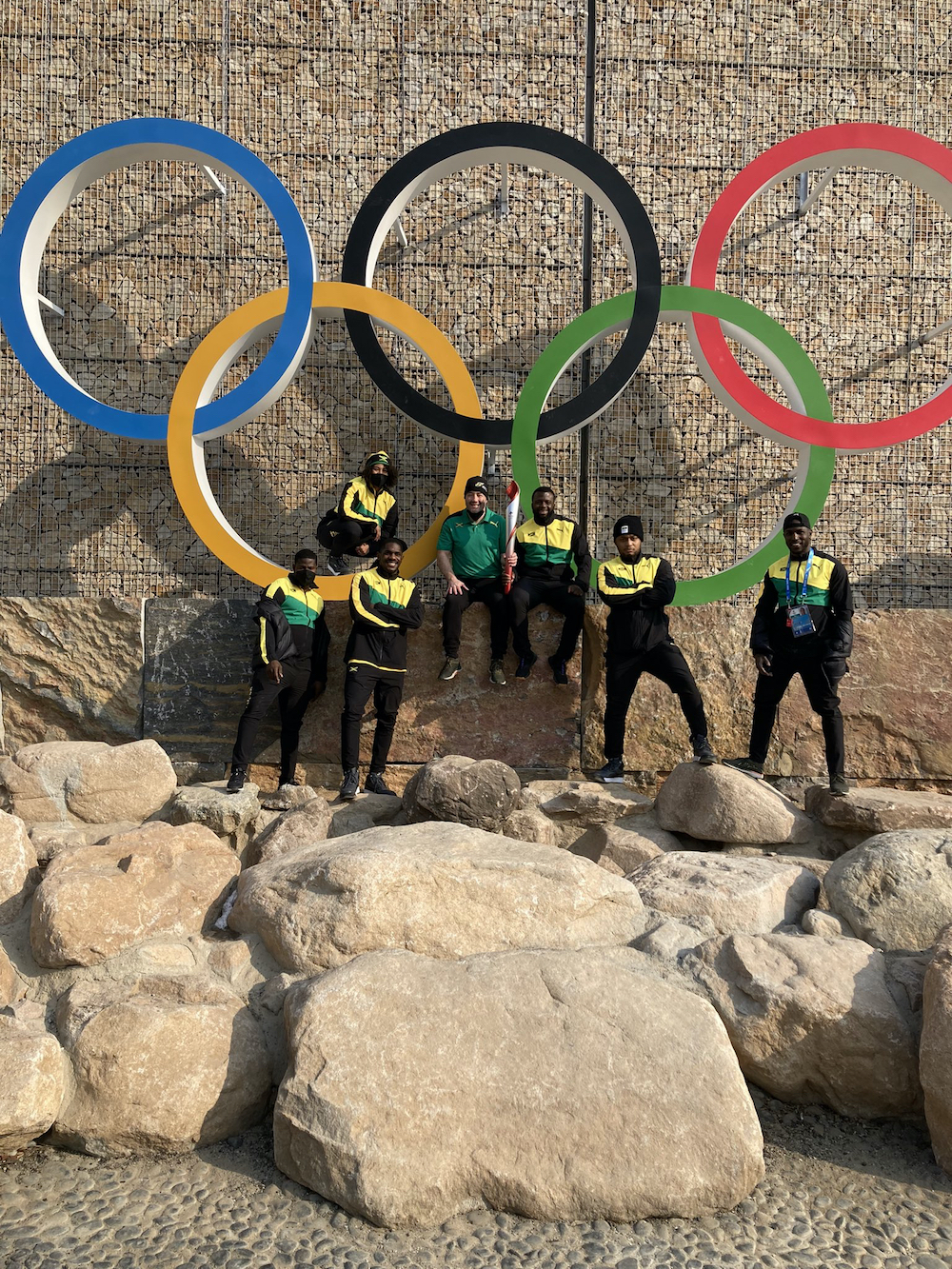
The father-of-two did the luge for three years after being encouraged by a colleague. “He did the skeleton himself and said, ‘We have a camp, I think you’d enjoy it’. I asked him to elaborate and he said ‘if you get a Christmas Tree and throw it down headfirst all the branches brush-in off the sides – that’s skeleton. If you throw it down stump first, all branches hit the side and they rip-off – that’s luge.’ He asked me what I fancied, and I said I’ll have a go at luge.”
Burry Port born Mark decided to quit the luge after injuring his arm badly on a luge run. “I was going at 80 miles per hour and my arm dragged on the side – I’ve got a cracking scar, it got infected badly, so I decided the bobsleigh is definitely safer.”
A veteran of the forces, Mark has been in the RAF for 23 years. He has served tours of duty in Afghanistan and the second Gulf War, as well as being part of peacekeeping operations with the United Nations.
He is grateful that the forces do a lot of adventurous training, which led to his Bobsleigh passion that is also currently his job.
“The forces do a lot of this type of training, especially during the height of Afghanistan, to help the soldiers to deal with the front-line stuff. Trust me, there is nothing more fearful than being at the top of a bobsleigh track and having to slide down and 80mph.”
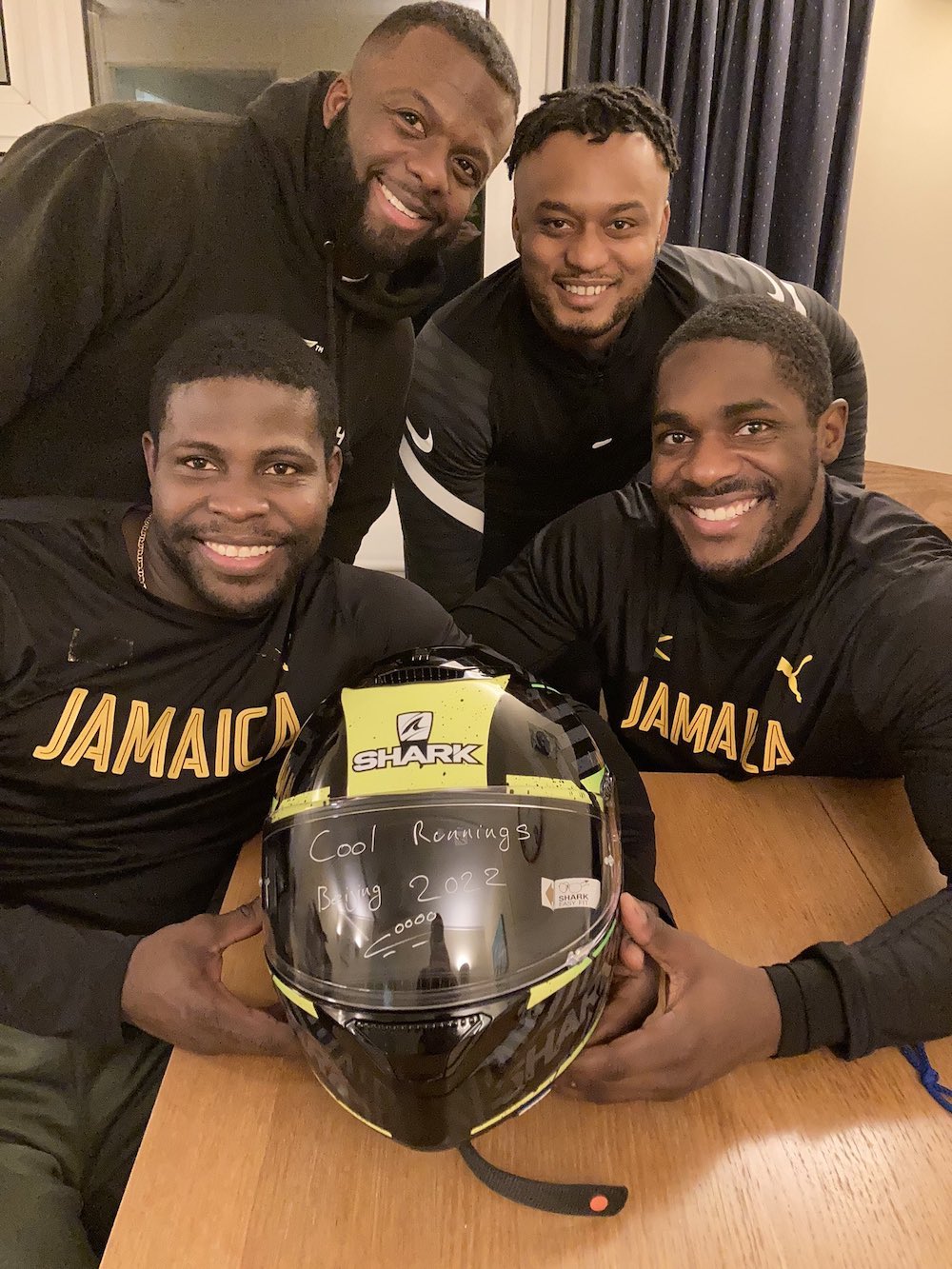
“It gets the adrenaline up and gets them to act in different scenarios. The military have always actively pushed and encouraged this type of training in downtime to give people an opportunity away for sport. They pick high adrenaline stuff like parachute jumping or similar, as it’s the nature of the beast that they want – people being able to deliver in circumstances where the pressure is on.”
Mark strongly believes that being active and involved in sport has a huge positive impact on people, particularly from poorer backgrounds, as well as society in general.
“People would say ‘you’re mad to do it’, but it’s something that I could do. I loved rugby all my life and as I grew up it was my life. Bobsleigh was more along the lines of I get four weeks extra holiday to do it through work – I got paid to have weeks away doing stuff that I liked, which is brilliant.”
The bobsleigh world is littered with British coaches who are current and ex-military as a result of this. John James Jackson, who won a silver medal at the Bobsleigh European Championship in 2014 and a bronze at the 1998 Olympics in Nagano, is from the Navy. Paratrooper Sean Olsson was also a bronze medal winner in 1998.
“There are so many servicemen involved. If I go outside the gates here in Beijing, there’s me with Jamaica, Tom De La Hunty (RAF) is here coaching the Dutch team, Graham Richardson (RAF) is coaching Canada. They are all ex-military. I think they all have the ability and structure to plan things out properly. They are people who can manage people with an iron fist!” (laughs)
The Welshman fell in to coaching by chance through unfortunate circumstances.
“Our coach had a heart attack in 2011, so we didn’t have anyone to coach or help us, so I got interested in that. I was driving, coaching, running the team! It has given me opportunities through time though. I went and helped Canada, the Netherlands and Great Britain and just got more experience.”
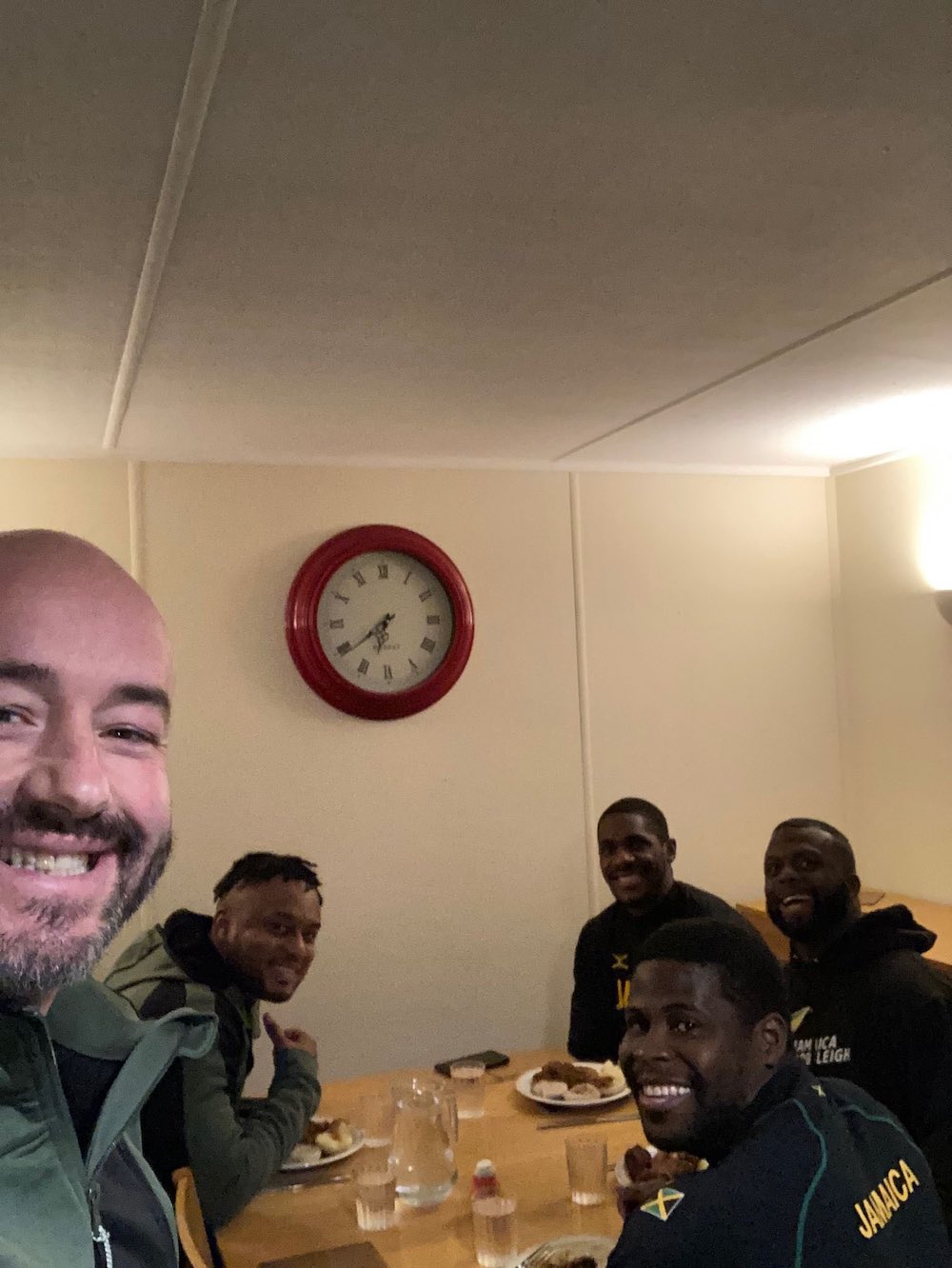
Coaching is something that he clearly enjoys, particularly as he has managed to help his RAF colleague and pilot of the four-man Jamaican bobsleigh team, Shanwayne Stephens.
“I have been helping Jamaica for four years, since the last Games. I coached Shan for years. They asked me to help out this time for the Games. We had a tough year trying to qualify. But it’s been about helping Shan as well as Jamaica. It’s great that I can help Shan, he’s a good guy.”
The Jamaican team, which consists of Shanwayne Stephens, Nimroy Turgott, Ashley Watson and Matthew Wekpe, will contest in the four-man event for Jamaica, the first time since 1998.
As Mark points out it has been more difficult to appear in the games than many realised.
“A lot of people have said it’s the first four-man team to qualify for 24 years, but the reality is 24 years ago they didn’t have to qualify by points. They just had to have 5 races in 2 years and then got to participate. So, it was really tough to qualify this time, it’s a huge achievement to get to the games. Now we are here, the boys obviously want to do well.”
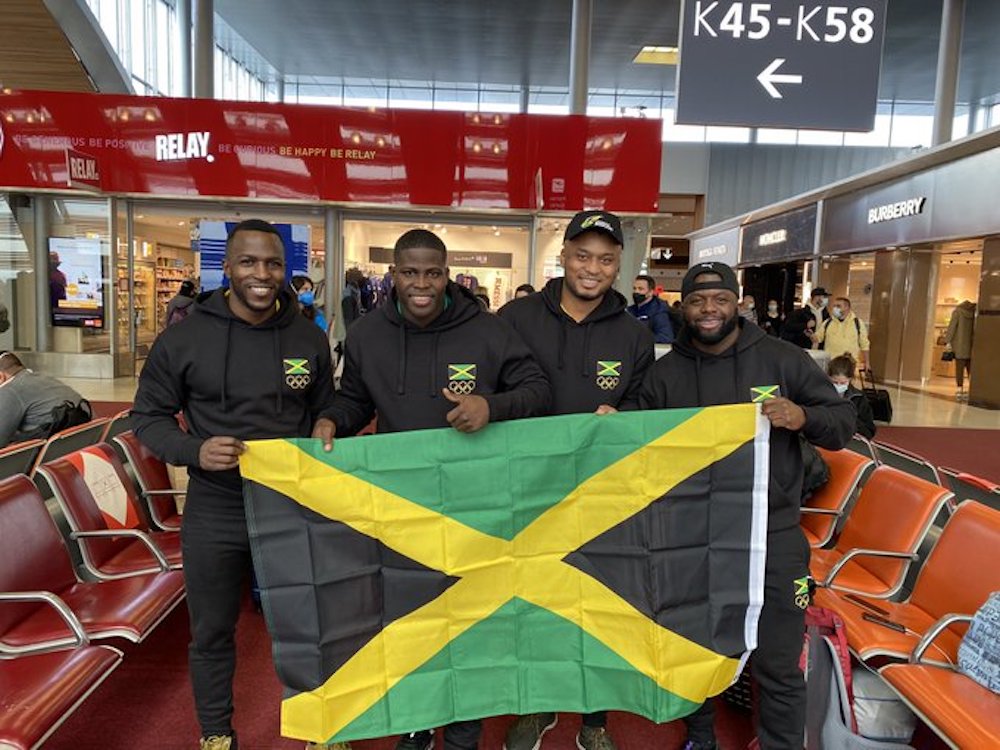
Jamaica have so far been offered a record three places at the Games (in the women-only monobob, as well as the two-man and four-man sections), but it has not been without tribulation.
When they were due to fly out on 28th January, delays in retrieving their Olympic accreditation passes saw the team fretting about whether they would even be able to make the trip to China.
“We were struggling to get there. The Jamaican Government – the way they run things – there’s always conflict and politics, like the WRU, or any organisation really. The accreditations are essentially the visas and we needed them to get to the games. They were stuck in Stansted for about a week.”
On what was a simple admin issue, Mark was willing to drive to Stansted to collect the passes himself. Red tape and policy wouldn’t permit it meaning they were left worried that their dream was over before it had begun.
“It was stressful,” says Mark in his soft west walian lilt. “They had gone from Jamaica to America and then to Stansted within 2 days – but they were stuck at Stansted for 5 days!”
“Sky helped. We had done some press for them, so I spoke to Tom Parmenter (Sports Correspondent at Sky). Once he tweeted it, I had a phone call straight away from DHL. Some driver that should’ve been going to Warrington came straight to my house with them. Within two hours I had them in my hand!”
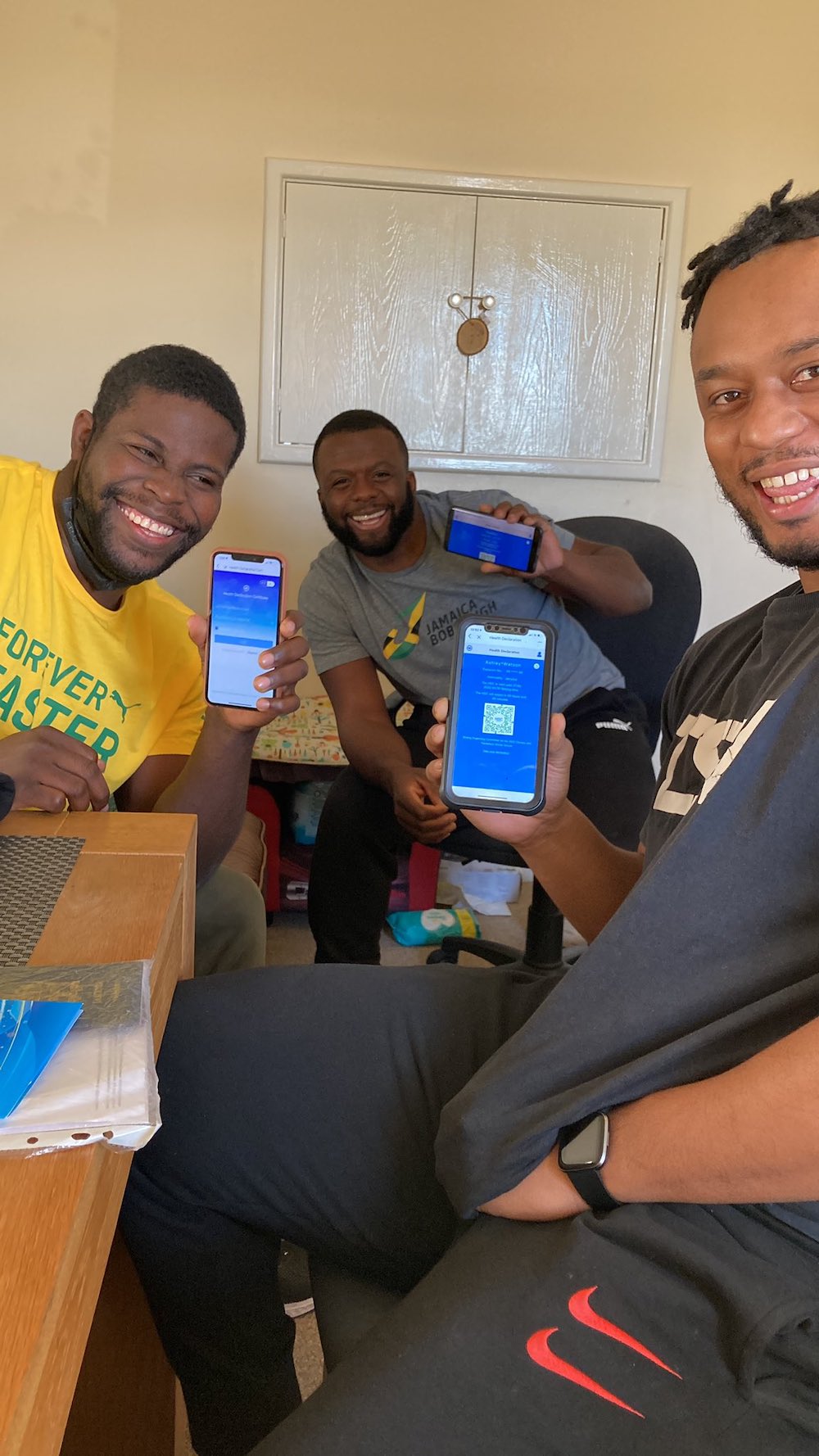
Mark is realistic about Jamaica’s chances at the games, but he is determined that his team and the country he is representing make their mark at the games.
“People mention our medal chances, but we were ranked 30 out of 30 in qualifying. It’s going to be tough. Other teams were here in October and November, but we couldn’t because of the lack of money and trying to qualify. Our rivals have all had 30 or 40 runs at this track – we’ve had 5 or 6!”
This hasn’t deterred Mark or his team, their desire and determination to do well is evident.
“For us it is to come here and be competitive. We want to try to pick off nations where they have tracks, full-time athletes and million-pound budgets. If the boys can look in the mirror and know they’ve done their best, then I’ll be happy.
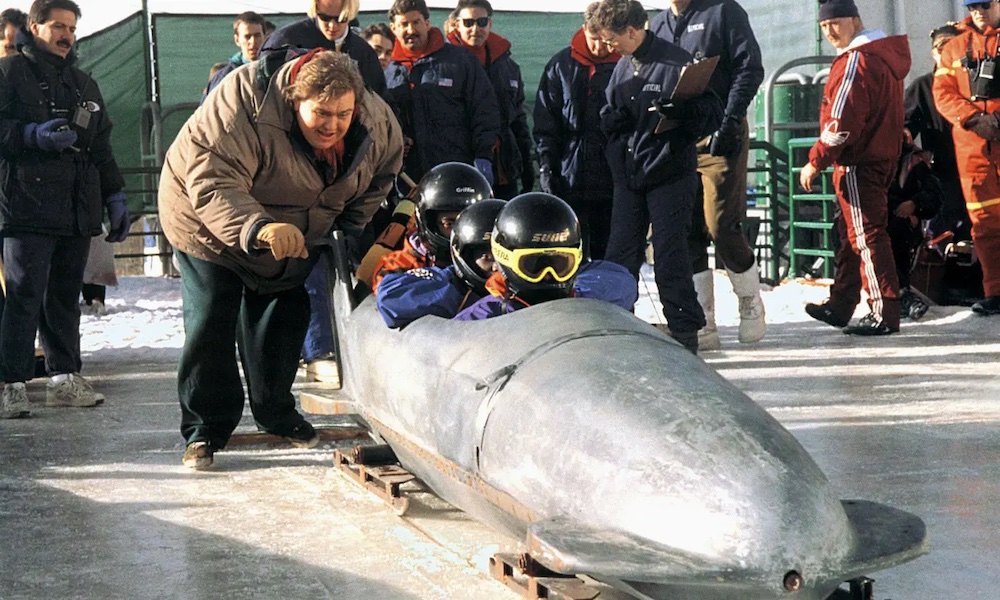
The inevitable Cool Runnings references have dogged the team since their qualification, but this is something that they have taken in their stride.
“It doesn’t bother the boys. They’ve done so well to get here. The pilot in Cool Runnings, Dudley ‘Tal’ Stokes, often speaks about the disappointment that they did they film because in 1988 they crashed, and Disney made a film about it. But in 1992 they beat the Americans and finished 14th, and they never did anything about it. Tal says nobody ever filmed that or knows anything about it, so it’s almost just a film about failure.”
Mark grins as he continues, “For me it’s key that they don’t film Cool Runnings 2, because if they do, something’s gone wrong!” he laughs.
Proud Welshman Mark sees many similarities between Jamaica and his place of birth – they are both small nations that are often the underdogs.
“It reminds me a lot of Wales really, in that I came from a poor background in Burry Port and sport was my life. It was rugby for me, and football for many other kids, to get them out of the house. Chris Stokes (from the 1988 Cool Runnings team) is putting a lot of his own money into the cause, he is keeping it going. The guy is providing a platform for these kids and he’s giving them a chance. Some of them are from very poor areas in Jamaica. He is losing his money to help the kids. I really believe in what he does. Its’ going to change some of the guys’ lives – and that is only a good thing.”
His focus is on Jamaica doing well and he is proud to be representing the Caribbean island in Beijing.
“When you do anything, you have to be focussed for what it is. For this job it’s about Jamaica and getting to the Olympics – it’s not about me. I try to keep out of the way.
I went to the opening ceremony and waved at a few people and that was a treat for me. For my role with Great Britain I am a Welshman helping Britain. But in this role, you’re also patriotic to the cause. It’s no different from a New Zealander coaching Wales rugby. You have to buy into what it is. I can relate a lot of it to being Welsh, but I know it’s for Jamaica and the Jamaican people.”
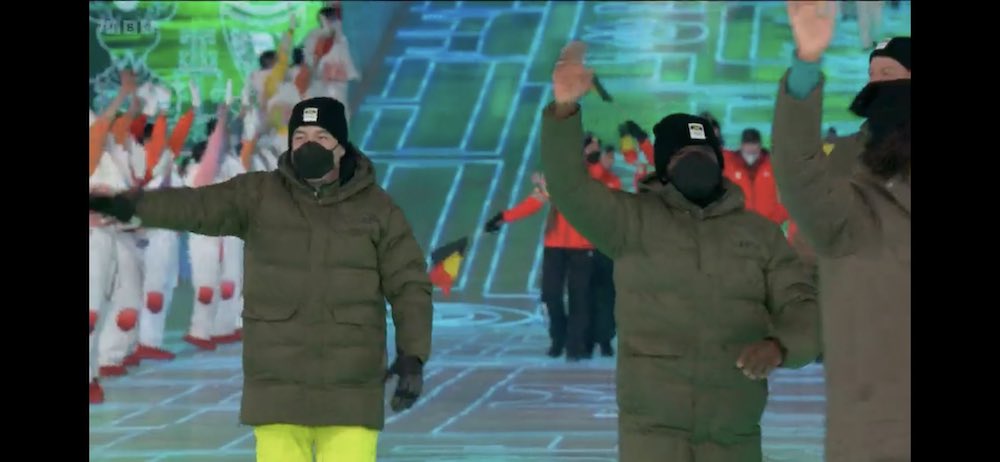
Mark Silva is a man on a mission. He is working with Great Britain and setting up developments that he believes will lead to many medals in the future. He also thinks Jamaica have great potential, but that lack of funding is hindering them.
“I look at Jamaica and they have a higher standard of athletes. The difference is the high calibre athletes will get a lot of money in other events, but not in the Bobsleigh. There simply is no money involved. It costs a fortune to be involved – around £300k just to get them on ice.”
However, he is adamant his team can be successful, despite the odds being against them.
“They want to set up a legacy of their own. It’s not about taking part. It’s more than a movie now. They want to be taken seriously and they can be. The boys just need to deliver as best they can.”
The Jamaican team may not end up as Olympic champions, but as John Candy’s character Irv said in the film: “a gold medal is a wonderful thing. But if you’re not enough without one, you’ll never be enough with one.”
Support our Nation today
For the price of a cup of coffee a month you can help us create an independent, not-for-profit, national news service for the people of Wales, by the people of Wales.





